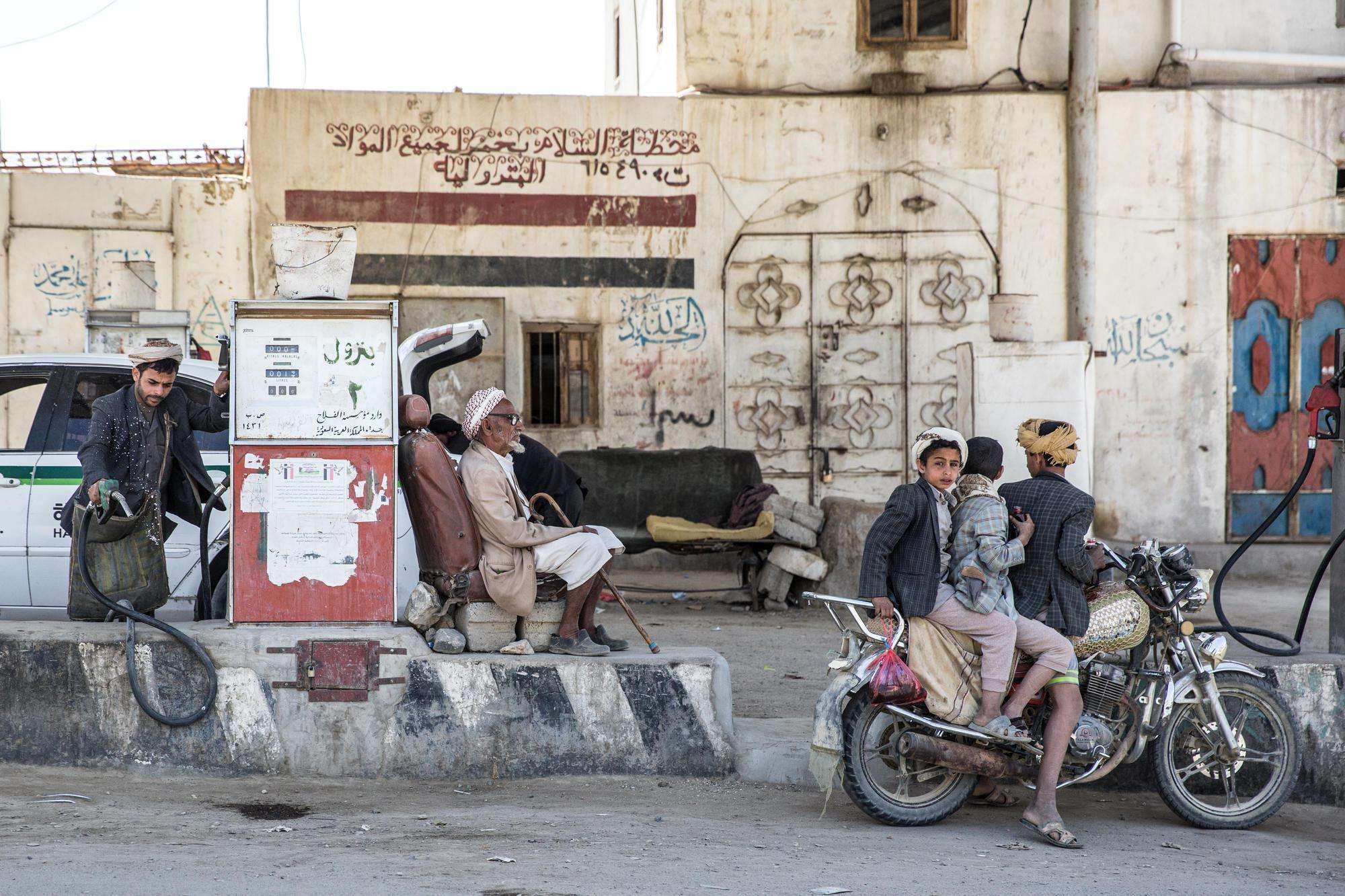MSF works in 12 hospitals and health centers across Yemen and provides support to more than 20 hospitals or health facilities across 11 governorates: Abyan, Aden, Amran, Hajjah, Hodeidah, Ibb, Lahj, Saada, Sana’a, Shabwah, and Taiz.

Medical Figures, March 2015 to October 2018
- 91,574 people with injuries related to war and violence treated in MSF facilities
- 973,095 emergency room patients received at MSF-run and supported facilities
- 76,436 surgeries
- 34,189 children admitted to pediatric wards
- 64,032 babies delivered
- 232,576 general consultations for internally displaced people
- 114,646 suspected cholera cases
- 14,130 cases of malaria treated
- 14,370 cases of malnutrition treated:
MSF Operations in Yemen
MSF employs more than 2,200 staff members in Yemen and provides monthly salaries to some 700 Yemeni Ministry of Health staff.
MSF sent 848 tons of medical supplies and equipment to Yemen from January to October 2018. From March 2015 to October 2018, 4,760 tons of equipment and supplies were sent.
Hodeidah
On September 18, a new offensive was launched by forces backed by the Saudi- and Emierati-led coalition (SELC) to retake the port city of Hodeidah from Ansar Allah control after a new round of peace negotiations failed in Geneva. In mid-September, SELC-backed forces moved toward eastern Hodeidah, with daily clashes partially blocking the main road from the city to Sanaa, Yemen’s capital, and raising fears of a siege.
Clashes erupted on multiple occasions near Al Thawrah hospital, Hodeidah’s largest.
In August and September, further depreciation of the Yemeni Riyal led to increases in the prices of commodities, while shortages of fuel and cooking gas were also reported. It is estimated that more than half of Hodeidah’s 600,000 inhabitants have left the city, moving towards Sanaa, Ibb, and Hajjah. In October, however, we observed some people returning to the city due to deteriorating economic conditions.
In early October, MSF started working at Al Salakhanah hospital, northeast of the city. Teams rehabilitated the emergency room and operating theaters in order to provide emergency medical and surgical care in case fighting reached new areas of the city. Health care services are lacking in this area, particularly trauma and surgical care.
A stronger offensive was launched by SELC-backed forces on November 1, with deployment of troops on the ground and fighting drawing very close to Al Salakhana hospital, where MSF teams are working. Al Salakhana is one of only three operational public hospitals in the area. Al Thawrah hospital, the main public health facility in the city, is still operational but is threatened by fighting and rapidly moving front lines.
In November, MSF teams treated at least 750 war-wounded patients from the front lines in Hodeidah at facilities in the city and in Mocha, Aden, Abs, and Hajjah. Most patients suffered from gunshot and blast wounds.
Since August, MSF teams have also been working in Mocha, 180 kilometers [about 112 miles] south of Hodeidah, where we opened a surgical field hospital to provide emergency medical care to people injured on the front lines in Hodeidah and Taiz. Since the facility opened nearly 2,000 consultations have been carried out in the emergency room and more than 1,000 surgeries were performed. Eighteen percent of the emergency patients received from August to December were children under 15. Patients suffered injuries from landmines, gunshots, shrapnel, and blasts. The MSF field hospital in Mocha remains the only health facility performing emergency surgery in the area. Teams also treat pregnant women with complicated deliveries who require urgent surgery.
Ad Dhale project closure
On November 7, MSF announced the closure of its project in Ad Dhale Governorate following two security incidents that occurred less than a week apart in October, targeting MSF staff. The decision to close came as a direct result of repeated attacks and threats of violence on the medical facility, health staff, and most recently, on MSF’s residence in Ad Dhale.
The closure of activities includes stopping support to four health facilities: Al Nasr Hospital in Ad Dhale town, Al Salaam Primary Health Care Centre (PHCC) in Qatabah, Thee Jalal PHCC in Al Azariq, and Damt PHCC. MSF was one of the few medical organizations delivering humanitarian assistance to the community in Ad Dhale.
MSF had been working in Ad Dhale since 2012, supporting the provision of free medical care to the people of Ad Dhale, Qatabah, Al Azariq, and Damt districts. MSF’s support enabled these health facilities to treat more than 400,000 patients across the governorate.
Cholera
From January to October, 2018, MSF teams treated 6,680 suspected cholera cases in Ibb, Amran, Ad Dhale, Hajjah, and Taiz governorates. We run cholera treatment units in Khamer (Amran Governorate) and Ibb and Abs (Hajjah Governorate) and cholera treatment centers in Thi Al Sufal (Ibb Governorate), Houban (Taiz Governorate), and Abs.
In Ibb, MSF recently opened a new cholera treatment center to deal with growing numbers of confirmed and suspected cases of cholera in the governorate.
The Yemeni health system has essentially collapsed, and health staff have not received salaries since August 2016, leading to a lack of qualified medical personnel. Provision of health care is limited to the few hospitals that are still functional. In addition, the closure of Sanaa’s airport has prevented people from seeking treatment abroad.
Cholera—while it appears to have been contained—remains a threat, since conditions are ripe for new waves of the disease. However, as of today, numbers of cases are nowhere near the peaks of the outbreak in 2017.




